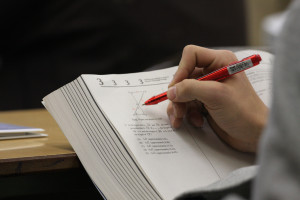Students certainly need some highly developed SAT skill-sets as a foundation. After that, the exam is all about precision.
Students, parents, and just about everyone complain about the unfairness of the SAT. One of the main causes of these complaints is about the SAT’s huge need for precision. No one reading this right now thinks that a need for accuracy is the reason they don’t like the SAT, but it is. I think many students would agree that when there is a big disconnect between the scores they think they achieved after leaving the test center and the disappointing scores they see a few weeks later – that is the reason they “despise” the SAT.
This disappointing experience is the result of the tremendous level of precision that the SAT requires.
The problem isn’t that the SAT requires such a high level of accuracy. The problem is that this precision is necessary and the College Board presents the SAT as being straightforward. If students were made aware that on all sections of the exam (critical reading, math, and writing skills) – as well as in any area of a difficulty progression – any given question may require a significantly higher level of precision than the other questions surrounding it. It’s very hard to notice all of these tricky questions especially when you’re not aware that this is even happening. If every question required the same level of mindfulness and focus, students would be well aware and would be ready for it. The fact is that while many SAT questions are ‘business as usual’ in terms of difficulty, there are exceptionally tricky questions that are found sporadically. Whether these questions are extra deceiving because of the wording of the question or the wording of the answer choices is irrelevant – as long as students don’t realize how often a much higher level of precision is needed, they will continue to be disappointed with their scores.
This challenge in itself makes the SAT a very different experience for students. Exams in school don’t require students to maintain a hyper level of vigilance throughout. In fact, very few students ever experience situations in life where such a high level of alertness is necessary. And when students do experience this need for extra precision, they are generally going to be aware of it (like a soccer goalie, or many other types of athletes who are aware when full mindfulness is required).
The ability to be extremely precise is a pretty helpful skill in life and it might not be a bad thing that a college admissions test requires so much precision. The problem is that an exam as important as the SAT is not forthcoming about it’s deceptive nature. Here are some directions from an SAT math section along with an added line that I believe to be necessary. See if you can guess what was added:
Directions: For this section, solve each problem and decide which is the best of the choices given. Fill in the corresponding circle on the answer sheet. You may use any available space for scratch work. Please note that some of the questions are designed to be misleading and extreme care should be taken with each question. Good luck!


